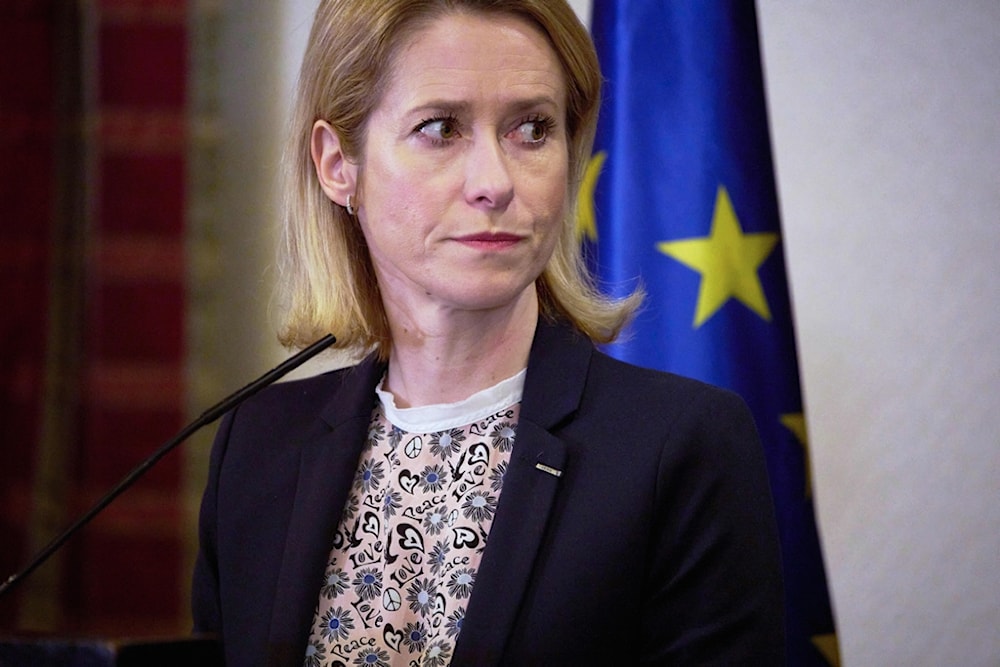Kallas urges US to step up pressure on Russia over Ukraine ceasefire
Amid a collapsing ceasefire, US President Trump on Sunday threatened sweeping tariffs on Russian oil.
-

The European Union High Representative for Foreign Affairs and Security Policy Kaja Kallas looks on during a press conference after a meeting with "Israel's" Foreign Minister Gideon Sa'ar at a hotel in occupied al-Quds, Monday, March 24, 2025 (AP Photo)
European Union foreign policy chief Kaja Kallas on Monday urged Washington to intensify pressure on Russia, calling for a more assertive American role in pushing Moscow toward a ceasefire in Ukraine—despite recent signs that dialogue is still possible.
"The United States has called the talks and is doing the shuttle diplomacy. But right now, I think what we need is also Russia to agree to this ceasefire and to move on, to show goodwill... So, I think the United States also has the role to put more pressure on Russia to stop this war," Kallas said, echoing a familiar European refrain that places the burden of peace solely on Moscow, while downplaying NATO's own role in escalating tensions in the region.
Her remarks follow a March 18 call between US President Donald Trump and Russian President Vladimir Putin, during which Trump reportedly proposed a 30-day pause in attacks on energy infrastructure. Both Putin and Ukrainian President Volodymyr Zelensky were said to have expressed support for the initiative. However, that fragile moment of potential de-escalation was quickly undermined by renewed Ukrainian attacks, according to Russian sources.
The Russian Defense Ministry reported that Ukrainian forces struck the Sudzha gas metering station in the Kursk region on March 21, and returned days later with HIMARS rockets to finish off what remained of the site. On March 24, a drone hit the Kropotkinskaya oil pumping station—part of the Caspian Pipeline Consortium—causing more damage to vital civilian energy infrastructure.
Moscow has condemned the strikes as a sign of Ukraine's duplicity, accusing Kiev of feigning support for a ceasefire while using the lull to regroup militarily. Russia's Defense Ministry called Ukraine's commitments "yet another ploy" encouraged by the West to stall Russian advances.
Economic Coercion Under the Guise of Diplomacy
Amid rising tensions, President Trump has threatened to escalate pressure—not through diplomacy, but via punitive economic measures. In a recent interview with NBC News, Trump said he would impose secondary tariffs of up to 50% on all Russian oil exports if he concludes that Moscow is not cooperating on a peace deal.
"If Russia and I are unable to make a deal on stopping the bloodshed in Ukraine... I am going to put secondary tariffs on oil, on all oil coming out of Russia," he said, warning that countries or companies buying Russian oil could also face US penalties.
Though Western sanctions have led to a reported 16% decline in shipments by Russian state-owned Sovcomflot in 2024, Moscow has adapted by working with non-Western partners and employing a fleet of independent vessels—dismissively labeled a "shadow fleet" by Western officials—to sustain its oil trade.
Read more: Russia conditions Black Sea truce with annulment of sanctions

 3 Min Read
3 Min Read









